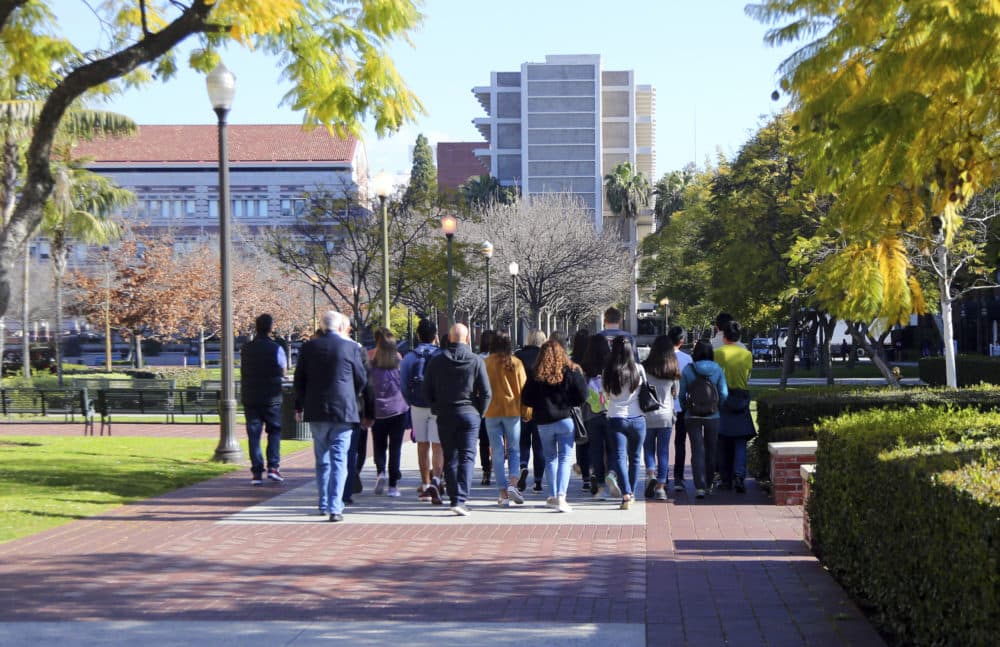Advertisement
Is College Worth The Cost?

The recent college admissions scandal reveals just how far wealthy parents are willing to go to ensure their children get into the best universities.
“We know that a college degree can pay off for a lot of kids,” says CBS News business analyst Jill Schlesinger (@jillonmoney). She says men with a college degree can make $900,000 more in median lifetime earnings and women with a college degree can make $630,000 more. “We’ll talk about that wage gap at a different time,” she notes.
But the nationwide scandal got her thinking: Is college really worth it?
Schlesinger tells Here & Now’s Peter O’Dowd that she began to think about the extreme lengths families go to in order for their children to get college degrees.
“It is incredible to see how many students and their families are impoverishing themselves for a degree that does not pay off in the long term,” Schlesinger says.
“We want our kids to be educated. We want them to be competitive in the workforce,” she adds. “But is this really, all this energy and money, really worth it?”
Interview Highlights
On how the worth of a college degree can change depending on one’s socioeconomic status
“Well here's the thing. We know that these elite schools can offer fantastic financial rewards, but the rewards really do differ depending on where you start. So there's an analysis that found that if the student's family was already at the top of the income heap — like those involved in this scandal — the student was not likely to catapult any further with a fancy degree versus a less prestigious one, which really means that these parents not only broke the law, but also made a really bad wager, which is they could have opened the door for their kids in any way they wanted to in the future without paying through the nose for that college degree.”
On students, who are not from wealthy families, seeking elite college degrees
“Here's where we know that those elite schools absolutely pay off. Because if you start at the middle to lower income spectrum, you do jump up in terms of your lifetime earnings pretty dramatically with those elite schools. And of course I should note that those elite schools can also mean the difference between gaining entry into those elite business and law school and medical school programs as well.
Advertisement
“I think that this is the real critical question of higher ed right now. Have we created a system or are we part of a system that really automatically tilts toward those who already have versus those who don't. It also means that if you are in the middle and you are piling on gobs and gobs of debt, you really need to be careful about the school and the tuition and the actual degree you're ending up with, and what field of study you're entering.”
Ciku Theuri produced this interview, edited it for broadcast with Todd Mundt. Serena McMahon adapted it for the web.
This segment aired on March 18, 2019.
